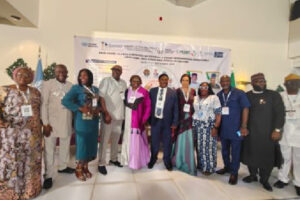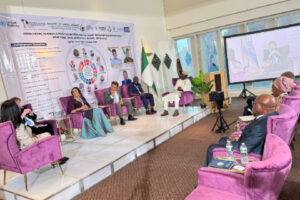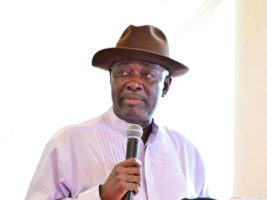At the 80th session of the United Nations General Assembly (UNGA) in New York, Nigeria’s delegation and international development partners held high-level discussions on closing critical funding gaps obstructing the 2030 Sustainable Development Goals (SDGs).
The dialogue also tackled emerging challenges from climate change and the disruptive impact of Artificial Intelligence (AI).
Speaking at the UNGA side event on High-Level Executive Global Sustainable Investments and Grant Interventions 2025, Kunle Yusuff, Executive Vice-Chairman/CEO of Merited Negotiation Consulting and Chairman of the Organising Committee, highlighted the scale of investment required to meet SDG targets.
“Meeting SDG targets demands an unprecedented annual investment of between $5 trillion and $7 trillion from 2023 to 2030,” Yusuff said.
He noted that climate financing alone would require over $15 trillion, with $7.2 trillion needed yearly, while AI-related investments between 2025 and 2030 are projected to exceed $10 trillion.
Yusuff stressed that state and local governments, civil society organizations, and NGOs cannot remain passive if they wish to shape global development effectively.
“We gather today at a critical juncture in human history, where global sustainability, equity, and prosperity demand bold action and collective commitment. This platform provides the opportunity to forge partnerships, mobilise resources, and accelerate progress toward the Global Agenda 2030. Strategic investment in sustainable development is both a moral imperative and an economic necessity,” he added.
Read Also
READ ALSO: Vice President, Shettima, Returns To Abuja From UNGA


He further emphasised that transitioning to a low-carbon economy could generate employment, reduce poverty, and stimulate growth.
Investments in renewable energy, sustainable agriculture, and climate-resilient infrastructure, he noted, are essential for securing the future of coming generations.
Yusuff also called for stronger global coalitions to advance climate action, social justice, and economic empowerment, urging governments, especially at sub-national levels, to collaborate with civil society and private actors in driving sustainable investments.
The session drew participation from a broad array of stakeholders, including Nigeria’s Consul General in New York, Amb. Abubakar Jidda; Mr. Syndoph Endoni of Nigeria’s Permanent Mission to the UN; Summit Liberty University CEO (Virginia, USA); and Charles Kamin of RMC Advisory Group, Canada.
Other attendees included Judith Oghenekaro of Gender for Education Empowerment & Entrepreneurship (USA), Hope Sullivan, President/CEO of the Leon H. Sullivan Foundation, and state delegations from Ondo, Benue, Kaduna, and Gombe, led by their respective governors.
The discussions underscored the urgent need for coordinated global investment and strategic partnerships to meet SDG targets amid evolving technological and environmental challenges.





